
Lactation / Breastfeeding Continuing Education Bundle #9 (29.5 Hours)
The GOLD Lactation Online Conference is the largest Annual Breastfeeding Conference in the world. This 2021 package includes fascinating topics such as the immunology of human milk, the biology of the mammary gland, breastmilk fat profile and the implications for clinical practice, lactation support for parents with anorexia nervosa, interactive case review, overcoming the challenges of providing virtual support, clinical skills and so much more! Learn from experts speakers Nekisha Killings, Lisa Marasco, Liz Brooks, Michal Ann Young, Muswamba Mwamba, Johanna Sargeant, Rue Khosa, Diane DiTomasso, Amal Omer-Salim and so many other amazing minds and expand your knowledge and skills!
It is an excellent resource suitable for all skill levels and is a perfect fit for IBCLCs, Lactation Consultants, Lactation Educators, Breastfeeding Counselors, Mother to Mother (Peer to Peer) Support Workers, Midwives, Doulas, Childbirth Educators and anyone else working or studying within the maternal-child health industry. Explore the latest research, trends, new ideas and hot topics in the world of human lactation.
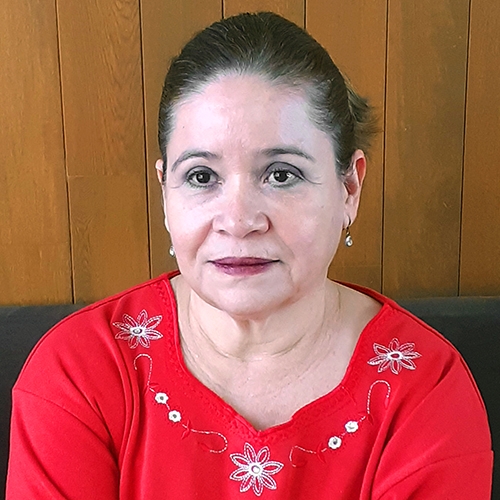

Dr. Blanca Aguilar Uscanga is a Biochemical Engineer in Food Science and has a Masters in Food Science. She graduated from the Institute Technologic of Veracruz (ITV) México. She completed her doctoral studies in the specialty of Biotechnology at the National Institute of the Sciences Appliqués of Toulouse in France.
She is currently a full-time research professor (since 2006) at the Centro Universitario de Ciencias Exactas e Ingenierías (CUCEI) de la Universidad de Guadalajara. Dr. Aguilar Uscanga is adjunct professor to the Department of Pharmacobiology, where she teaches courses of Applied Microbiology, Biotechnology and Food Science to undergraduate and PhD students.
She is a member of the National System of Researchers in Mexico recognized by CONACYT, with level 2. The research areas are: Food Biotechnology and Microbiology, which cover different areas of research such as: Obtaining bioactive compounds and metabolites of industrial importance through of microorganisms, production and development of functional foods, fermented beverages, probiotics, prebiotics and food safety.
She has international collaborations with the Institute Armand Frappier, Canada and the Institut sur la nutrition et les aliments fonctionnels (INAF) in Québec. Currently she is member of INRS and has an honorable mention of “Professeure associée” provided by the INRS- the Institute Armand Frappier in Laval, Canada.
Objective 1: Describe alternative methods for the conservation of human milk.
Objective 2: Discuss relevant information on the spray drying technology to transform the milk stored in the Human Milk Banks into powder.
Objective 3: List researchers in the field who are interested in the future collaborations.
Human milk is the first food that the newborn receives and provides all the nutrients necessary for its growth. In order to feed children with breastfeeding problems, Human Milk Banks (BLH) were implemented, which conserve this food through pasteurization and freezing processes. Because human milk is very perishable, this work will present some results obtained on spray drying, high hydrostatic pressures, and UV radiation in human milk, in order to preserve and avoid loss of nutrients in this food, as well as offer a new alternative to the BLH for its conservation.
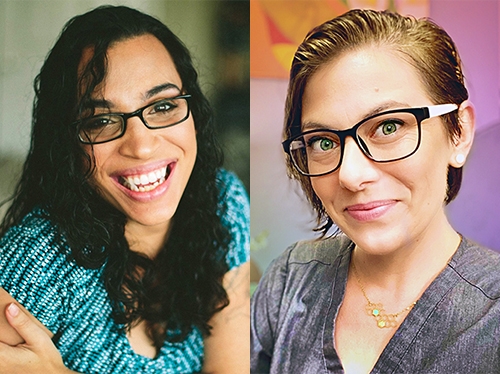

Shondra Mattos is an IBCLC (Internationally Board-certified Lactation Consultant) and owner of a Location-independent lactation practice where she provides breastfeeding and infant feeding support to families countrywide.
Shondra finds the science of lactation fascinating, and as such, she has a passion for sharing her understanding of complex lactation subjects with her colleagues and aspiring lactation students. When she's not with clients, speaking, or teaching, she spends time with her husband and daughter in Fayetteville, NC.
Bryna is a lactation consultant, mentor, educator, and birth doula in the Pacific Northwestern United States. They are active in their community as an advocate for mutual aid, reproductive justice, and reduction in barriers to care. They also own and manage an inclusive private practice. As a member of both Queer and Neurodivergent communities, offering inclusive care on every level is very important to Bryna. Their vision is to offer information and tools to providers to build a community of comprehensive, concordant, and individualized care for all families in the perinatal period.
Objective 1: Describe difficulties to other providers.
Objective 2: Explain in simple terminology to parents what’s going on.
Objective 3: Discuss what strategies will improve muscular movement, tone, and strength
We propose a talk that outlines the anatomy and physiology of normal infant feeding. Our talk will cover the basic functions of infant muscle groups recruited for latching, sucking, swallowing, and drinking human or artificial milk. We believe that if lactation professionals understand normal physiology as it pertains to muscle groups, they will better be able to educate and help the families our profession serves. At the end of this talk, the lactation professional will be able to establish a baseline for normal muscle function when evaluating the breastfed infant. We will use multiple learning modalities to outline and explain the essentials of muscle function in the breastfed infant.
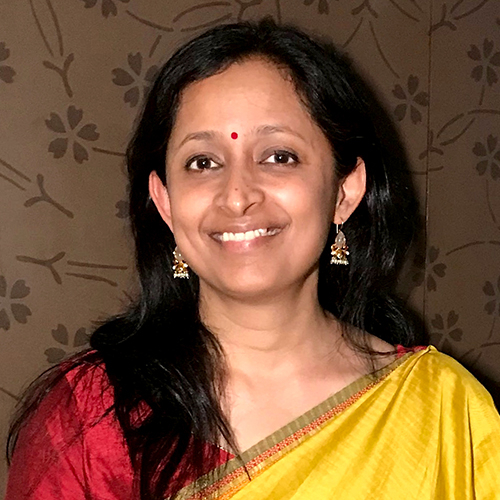

As a Pediatrician and an IBCLC, Shacchee is attracted to ways of promoting health and well-being for families. She transitioned to lactation support 14 years ago after her first daughter was born, realising the felt need for skilled Lactation Support in her community.
She works at a tertiary care hospital in New Delhi, India, and heads a Lactation team, supporting families in their antenatal, intra-natal and postnatal periods. She also trains medical and paramedical staff in skilled lactation support.
She is the current President and Executive Team member of ALPI (Association of Lactation Professionals India). She works as a clinical instructor, helping train future lactation professionals in various aspects of Skills, Ethics, Scope of Practise and Communication.
She co-ordinates between Public and Private healthcare bodies to provide equitable lactation support across her community.
She is an advocate of teamwork in supporting dyads with special lactation challenges (oral restrictions/ NICU babies etc) and has been working to bring experts from different fields together for comprehensive lactation support.
Working with different teams locally and nationally allowed her to achieve the goal of making, "skilled lactation support a reality in India."
Married to Vipul, they have two super girls Navya (14) and Ayana(11).
Objective 1: Discuss the need to involve and train the local community / team in a resource limited setting.
Objective 2: List at least 2 ways in which they can support a family in a less than ideal environment.
Objective 3: Describe how lactation support can look different in different settings.
We have protocols and optimal models of care for lactation specific challenges. Does this mean we cannot provide optimum support in resource limited settings or less than ideal settings?
Skilled lactation support can mean different things in different settings. To serve a community, its crucial to understand the particular needs of the community and to be able to cater to them in a culturally acceptable and feasible way without compromising on the quality of lactation care, more so in resource limited settings.
India has a huge population of families in need of lactation support and we also have scarcity of skilled and trained lactation support people. We are such a diverse country that our customs, language, socioeconomic milieu (and thus the challenges) change every few Kilometres.
This presentation talks about the various means with which we were able to improve the availability Skilled Lactation Support in the community, especially utilising our most plentiful resource, our community, with online and onsite mentoring....i.e. skilled lactation support to the community by their own community.
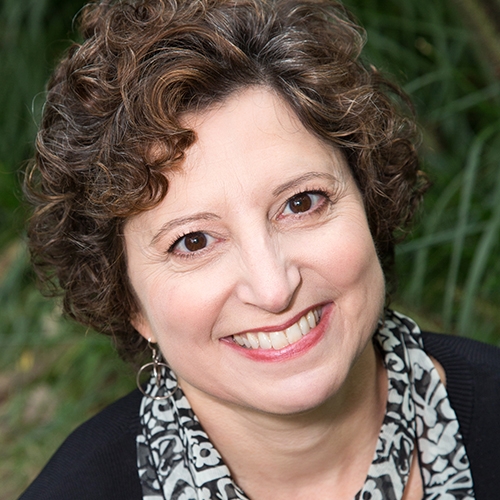

Alyssa has been helping parents and babies with breastfeeding since 2002, first as a La Leche League Leader and since 2009 as an International Board Certified Lactation Consultant.
Alyssa works in private practice serving clients worldwide, primarily through telehealth. She is the author of Breastfeeding Without Birthing: A Breastfeeding Guide for Mothers Through Adoption, Surrogacy, and Other Special Circumstances and a professional supplement to the book, The Breastfeeding Without Birthing Professional Pack online training.
Alyssa has authored articles for The Journal of Human Lactation: The Three Step Framework for Inducing Lactation and Successful Co-Lactation by a Queer Couple: A Case Study. She has also authored articles for La Leche League’s Leader Today and Breastfeeding Today magazines, and Adoptive Families magazine. She is an international speaker on the topics of inducing lactation, relactation, and other related topics. Alyssa is the proud mother of three breastfed children, two by birth and one by adoption. She lives in St. Louis, Missouri, USA.
Topic: Demystifying Inducing Lactation: How Lactation Happens Without Pregnancy and Birth - [View Abstract]
Topic: ReLATCHtation: Transitioning the Exclusively Bottle-fed Baby to Nursing - [View Abstract]
Topic: Supplementation: A Goldilocks Dilemma - [View Abstract]
Topic: The Proficient Pumper - [View Abstract]
Objective 1: The learner will be able to describe the circumstances when a parent might be transitioning from bottle to breast/chest
Objective 2: The learner will be able to identify challenges transitioning from bottle to breast/chest.
Objective 3: The learner will be able to discussing successful nursing.
Objective 4: The learner will be able to use the Building Blocks to Nursing.
Newborn babies are hardwired for breastfeeding: their newborn instincts direct them to latching at the breast/chest. But what about older babies who are currently exclusively bottle-feeding – can they learn to nurse too? A birthing parent may wish to initiate or resume breastfeeding after choosing not to breastfeed or discontinuing breastfeeding. An adoptive or foster parent may be placed with an older baby or toddler whom they wish to nurse. With patience, persistence, support, and some tools and tricks, it can be possible. This presentation discusses how to know if baby is ready to breastfeed, setting the stage for success, and the process of gentle transitioning from bottle to breast/chest.
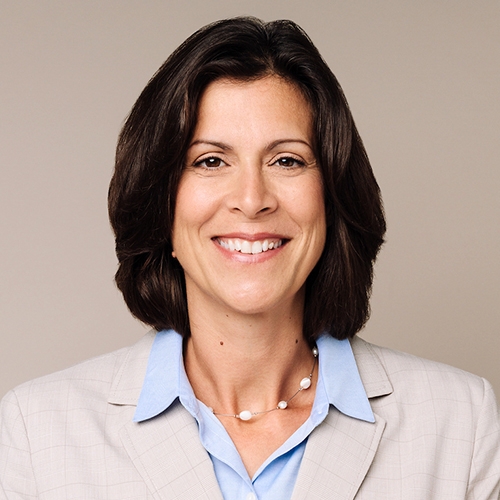

Dr. Diane DiTomasso achieved a Diploma in Nursing from Newport Hospital School of Nursing; a Bachelor of Science in Nursing, a Master of Science in Nursing Education, and a PhD from the University of Rhode Island. She is an Associate Professor at the University of Rhode Island College of Nursing.
Her research focus is human lactation and infant weight. She has multiple publications in journals such as Journal of Gynecologic & Neonatal Nursing (JOGNN), Journal of Human Lactation, Journal of Perinatal and Neonatal Nursing, and Nursing for Women’s Health and has presented her work nationally and internationally.
Dr. DiTomasso has received various honors and awards with the most recent being the 2020 Suzanne Feetham Nurse Scientist Family Research Award by the Eastern Nursing Research Society (ENRS) and the 2020 Best of JOGNN Award as first author of the article, “Systematic Review of Expected Weight Changes After Birth for Full-Term, Breastfed Newborn. She has served as Principal Investigator for a variety of neonatal research studies. Dr. DiTomasso is a member of AWHONN, the International Lactation Consultant Association, the Eastern Nursing Research Society, and Sigma Theta Tau International. She currently serves as a Member on the AWHONN Research Advisory Panel.
Objective 1: List 3 problems with data collection in research studies focused on newborn weight.
Objective 2: Discuss expected patterns of weight loss and weight gain in the early weeks of life for full term breastfed neonates.
Objective 3: Explain how increased neonatal weight loss affects exclusive breastfeeding rates.
This presentation will summarize the findings of recent studies on neonatal weight changes that occur in the early weeks of life among full-term, breastfed newborns.
Data Sources: Using the keywords breastfeeding, newborn, infant, weight, weight loss, and growth, we searched PubMed, Cumulative Index of Nursing and Allied Health Literature, Cochrane Library, and MEDLINE for primary studies and secondary analyses. We also reviewed the reference lists of retrieved articles. Study Selection: Quantitative studies published in the English language from 2015 through 2019 that focused on newborn weight changes. From a total of 827 records initially screened, we included 11 studies in this analysis.
Data Extraction: Two authors independently reviewed the selected articles with the use of the Johns Hopkins Nursing Evidence-Based Practice Synthesis and Recommendations Tool. To determine evidence levels and quality ratings, we evaluated the consistency and generalizability of study results, sample sizes, study designs, adequacy of controls, and definitive nature of the conclusions. This presentation will discuss the finding of this study related to expected weight changes after birth for full-term, breastfed newborns.
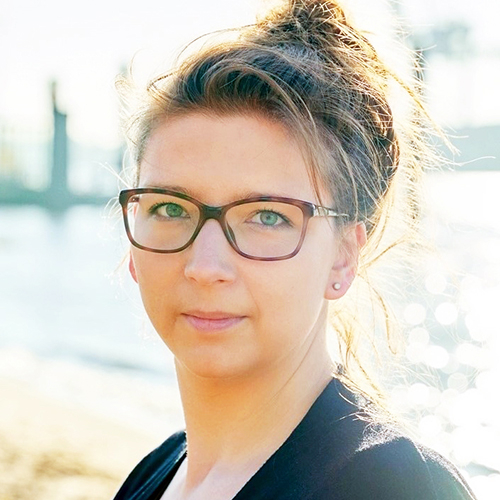

Lina Mazzoni is a Lactation Consultant, IBCLC with a Bachelors Degree in Speech and Language Therapy. Since 2013 she has been working primarily with children and specialized in the treatment of sucking, swallowing and feeding disorders. In 2019 she became a Lactation Consultant to be able to work equivalent with the children and the mother. As a working mom she worked part time as a Lactation Consultant in a hospital in Hamburg, started her own privat practice in 2019 and since october 2021 she works exclusively in her private practice as a lactation consultant and SLT. She also works as an Instructor in lactation education and further education regarding feeding developement and disorders . Lina has two children and lives with them and her husband in Hamburg, Germany.
Topic: Sucking Disorders in Children with Neurological, Muscular, Genetic or Anatomical Diseases - [View Abstract]
Objective 1: Describe what ""Prevention“ is in a medical context.
Objective 2: Discuss the Influences of Breastfeeding an the physiological organic, sensory, motor, cognitive, oral and social development.
Objective 3: Describe how breastfeeding acts as a prevention factor for Speech and Language Disorders.
The prevention and early treatment of diseases is part of a Speech and Language Therapist's working field.
The question is, at what point can SL Therapy have a preventative influence, what are the advantages of early consultations and treatments and what significance does a nursing and lactation consultation have in this context. Asha and Fletcher (2005, S.1) called a SL Therapist and a Lactation Consultant a "Baby's feeding dream team", so the combination of these two professions might be a good way to facilitate difficult breastfeeding relationships and reduce SL disorders over the years.
Breastfeeding is the physiological way to feed a baby. It supports the Mother-Child-Bond and sets the foundation for the undisturbed organic, sensorial, motoric, cognitive, oral and social development. If there is a problem with the ingestion of food (oromotor dysfunction or dysphagia), the topic of breastfeeding tends to move to the background. But what if breastfeeding can be used as part of the therapy? Promoting early SLT and by supporting the breastfeeding and preventing the use of artificial teats, which can have a negative influence especially on the oromotor and muscle development, the outcome might improve.
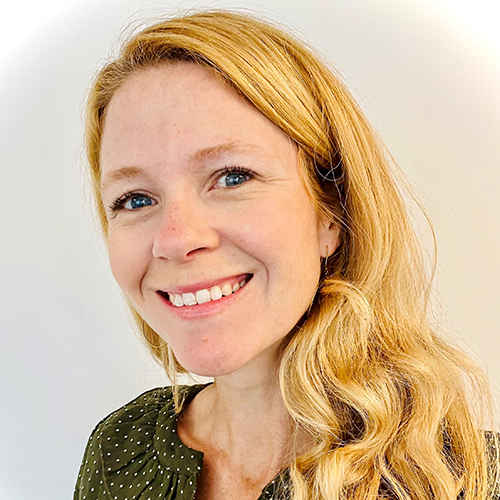

Johanna Sargeant is an International Board Certified Lactation Consultant, teacher and writer based in Zurich, Switzerland. She is passionate about utilising her background in education, biological science, psychology and language to empower parents with empathetic support and evidence-based information through her private practice, Milk and Motherhood.
Originally from Australia, Johanna provides much-needed English-speaking support to many thousands of parents throughout Switzerland and across Europe, and has recently been writing new education modules for the European Society of Paediatric Research and the European Society of Neonatology. She has taught at the University of Zurich, has spoken as a panelist for the WHO's Baby Friendly Hospital Initiative congress in Geneva, has been an expert speaker and facilitator for Google, and has presented at a wide variety of international conferences. The complexities of her personal feeding experiences fuels her passion for providing knowledgeable, guilt-free infant feeding support globally.
Topic: Mastering Lactation Conversations: Creating Successful and Achievable Care Plans - [View Abstract]
Topic: Seeing the Bigger Picture: Finding Clues in Our Breastfeeding Clients' Surroundings - [View Abstract]
Topic: When Evidence and Empathy Aren't Enough: Changing Your Lactation Practice to Boost Client Success - [View Abstract]
Objective 1: List the benefits and barriers of at-breast supplementation.
Objective 2: Describe when it is appropriate and inappropriate to be suggesting at-breast supplementation.
Objective 3: Discuss how to use the variety of at-breast supplementation tools.
Using an at-breast supplementer is often thought to be annoying, complicated and unsustainable -- but it doesn't have to be! While many lactation consultants are aware of the benefits of supplementing directly at the breast, many admit to feeling overwhelmed, and few actually use it with their clients. With this presentation, you will learn the specific benefits and barriers to this form of supplementation, view demonstrations of a variety of these devices, and learn some tips and tricks to make this at-breast supplementation feasible and sustainable for families. We all need to feel comfortable recommending and teaching the use of these tools, enabling us to foster the best overall health for the families we support.
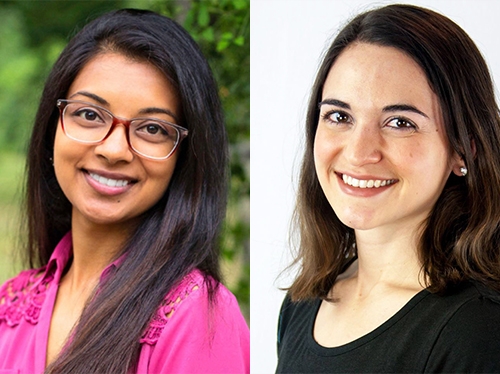

Divya Sinha Parikh MD, IBCLC, FAAP is a board certified pediatrician practicing in Columbus, OH. She received her medical training at The University of Pittsburgh School of Medicine and completed her residency in general pediatrics at Rainbow Babies and Children’s Hospital at Case Western Reserve University. During residency, she created a breastfeeding medicine clinical rotation.
Within her practice, she has extensive experience managing lactation concerns and has taken a special interest in mentoring current and aspiring breastfeeding providers. She has presented her work at local and national meetings.
Rachel Walker received her master’s degree in exercise science and wellness from Old Dominion University and a PhD in nutritional sciences from Penn State University. Her PhD work focused on lipid metabolism and insulin resistance. She has over 3 years of experience teaching both nutrition and exercise science courses.
In 2020, she was selected for a research fellowship from the United States Department of Agriculture for her study, ‘The Role of Metabolic Health and Lipid Metabolism in Human Lactation and Milk Composition’. Her current research is focused on the effects of insulin resistance during pregnancy and lactation, especially with the goal of developing therapies to improve lactation.
She has presented her research at numerous national meetings. Rachel’s proudest achievement is becoming Mommy to her 3 children, Clark, Lee, and Nora.
Objective 1: Discuss what factors affect low or high milk fat.
Objective 2: Discuss what factors affect fatty acid concentrations.
Objective 3: Apply knowledge of milk fat to clinical practice concerns in infant nutrition and donor milk use.
The fat content of breastmilk is remarkably important for infant health outcomes. Therefore, it is important to understand what factors affect breastmilk fat profile. Total fat is the main determinant of energy in breastmilk, and varies with time of day, length of lactation, and duration of the feed. Maternal factors also influence milk fat, including BMI, parity, and diabetes. Long-chain polyunsaturated fatty acids, like docosahexaenoic acid and arachidonic acid, are vital to the structure and development of the infant brain, and attaining the correct balance is important for optimal development. Breastmilk fatty acid concentration, especially the polyunsaturated fatty acids docosahexaenoic acid and arachidonic acid, are vital to infant brain development. Fatty acid concentrations primarily depend on diet and vary significantly between populations, but other maternal factors can also affect the fatty acid content of breastmilk.
Breastmilk fat content has significant implications for clinical practice. First, it is necessary to optimize clinical methods for human milk fat measurement, such as bedside human milk analyzers. Second, understanding milk fat variation will help optimize breastmilk fortification for infants in neonatal intensive care units. Finally, variability in donor milk also makes estimation of fat and energy in milk banks difficult, with important clinical implications for preterm infants who cannot receive mother’s own milk.
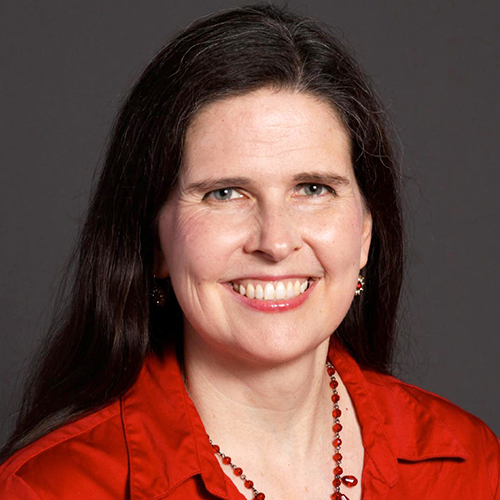

Marie Zahorick, MS, APRN, FNP-C, IBCLC became a La Leche League Leader in 1999 and an IBCLC in 2005. After several years of working as a hospital-based bilingual Spanish-speaking IBCLC, she attended nursing school and eventually became a board-certified Family Nurse Practitioner. In the meantime, she continued working as a hospital-based lactation consultant doing inpatient, outpatient, and Level III NICU lactation. She did not get much sleep.
After graduate school, Marie was recruited to work as a nurse practitioner in psychiatry. She was fellowship-trained to manage patients in the acute inpatient setting, partial hospitalization, outpatient office, and OB patients in the general hospital setting.
She specializes in women’s psychiatry, especially medical management of women who are pregnant or lactating. Her expertise also includes general psychopharmacology. She is experienced at diagnosing and treating mental conditions such as bipolar disorder, perinatal/postpartum mood and anxiety disorders, postpartum psychosis, obsessive-compulsive disorder, premenstrual and perimenopausal mood disorders, and personality disorders.
She lives in the Chicago area with her husband and three adult children in the transient stage of life. Her children all breastfed for at least two years but now just make faces when confronted with that fact.
Objective 1: List three categories of medications used in psychiatry during the prenatal period and discuss their mechanisms of action.
Objective 2: Report the clinical applications, side effects and potential harm of drugs used in perinatal psychiatry
Objective 3: Access reputable resources in psychopharmacology to help the patient and prescriber assess the risks and benefits of medications and risks and benefits of non-treatment
If you have worked with mothers for more than a few weeks, you have encountered a mother with mental illness. You may not have recognized the symptoms while talking with your patient. Or, you may wonder if a certain psychiatric medication is “safe” during lactation.
Perinatal mood and anxiety disorders (PMAD) include a spectrum of common mental health disorders: depression, panic disorder, obsessive-compulsive disorder, posttraumatic stress disorder, bipolar disorder, and postpartum psychosis.
These disorders often ruin enjoyment of the postpartum experience and bonding with the baby. Perinatal bipolar disorder and postpartum psychosis are particularly dangerous due to severe depression and reckless or bizarre behavior that can endanger mother and baby.
Medicating the lactating mother is a careful balancing act between the health and safety of the mother and the health and safety of the baby. But failing to medicate a mother with PMAD can lead to misery, dysfunction, poor infant outcomes and in the worst situations, injury and death.
This presentation will give an overview of the different classes of antidepressants, antianxiety medications, antipsychotics, and mood stabilizers commonly used in breastfeeding mothers. Electroconvulsive therapy and transcranial magnetic stimulation will also be discussed as non-pharmacologic treatments.
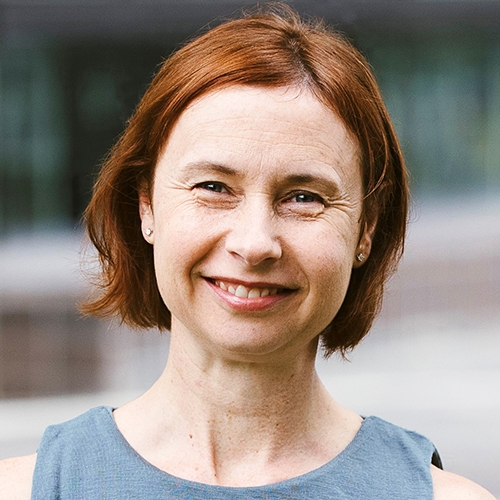

Wendy is a breast biologist at the University of Adelaide, Australia. Her research explores the biology of how the breast develops and functions to better understand how disease states occur, including lactation mastitis and breast cancer.
After postdoctoral research as an NHMRC CJ Martin Fellow at Albert Einstein College of Medicine in New York, USA, Wendy returned to Adelaide in 2005 and established the Breast Biology and Cancer Unit at the University of Adelaide. In 2011 she was appointed a National Breast Cancer Foundation Fellow and also The Hospital Research Foundation Associate Professor of Breast Cancer Research, which is her current appointment.
In 2016 Wendy won the Award for Excellence in Reproductive Biology Research from the Society for Reproductive Biology. Wendy’s research challenges old paradigms and explores new concepts in how the breast develops and functions to improve breast health across the life course.
Objective 1: List the developmental changes that occur in the mammary during puberty and pregnancy.
Objective 2: Discuss the biological mechanisms that lead to milk synthesis and secretion.
Objective 3: Discuss the biological differences in the mammary gland between human and other mammalian species.
The mammary gland is a unique tissue, common to all mammals, that undergoes the majority of development postnatally, particularly during puberty and pregnancy. During pregnancy, the mammary gland acquires the ability to make and secrete copious amounts of milk to provide essential nutrients and immunological protection to the newborn. The biological mechanisms that lead to milk synthesis and secretion are finely orchestrated as the composition, abundance and timing must meet the unique and specific needs of each mother-baby pair during this critical phase of infant development. This lecture will encompass the developmental mechanisms that enable the mammary gland to undergo lactation, the composition and secretion of breast milk, and a comparative analysis of the mammary gland between human and other mammalian species to better appreciate the remarkable functions of this unique tissue.


Karleen Gribble (BRurSc, PhD) is an Adjunct Associate Professor in the School of Nursing and Midwifery at Western Sydney University.
Her interests include infant and young child feeding in emergencies, marketing of breastmilk substitutes, parenting and care of maltreated children, child-caregiver and caregiver-child attachment, adoption reform, and treatment of infants and young children within the child protection, immigration detention, and criminal justice systems.
She has published research on these subjects in peer-reviewed journals, provided media commentary, contributed to government enquiries, provided expert opinion for courts, and engaged in training of health professionals, social workers, and humanitarian workers on these subjects.
Karleen is an Australian Breastfeeding Association Community Educator and Breastfeeding Counsellor. Since 2010 she has been a member of the Infant and Young Child Feeding in Emergencies Core Group and has been at the forefront of the development of policy, training and research in the area of infant and young child feeding in emergencies.
Topic: Infant and Young Child Feeding in Emergencies: Background, Best Practice, and What You Can Do - [View Abstract]
Topic: Milk Sharing: Comparative Risks and Biomedical Ethics - [View Abstract]
Objective 1: Describe how COVID-19 guidance concerning maternal and newborn care varies around the world
Objective 2: Discuss the role played by influential organisations in the development of COVID-19 guidance
Objective 3: Discuss the importance of ensuring appropriate emergency planning for infants and young children is developed
Where women are suspected or confirmed as having COVID-19, hospital practices have ranged from isolating infants from their mothers and proscribing the provision of expressed breastmilk to supporting mothers to have skin-to-skin with their infants, early initiation of breastfeeding, direct breastfeeding, and rooming in day and night.
This presentation will briefly summarize the evidence base for breastfeeding and close mother-infant contact in the COVID-19 pandemic. It will also describe the variance in government and professional development guidance around the world, anomalies in guidance, which guidance documents have had the most influence internationally, and provide examples of good and poor practice in guidance development. Finally, this presentation will discuss the importance of emergency planning for infant and young child feeding and the need to learn from the mistakes of the COVID-19 pandemic.
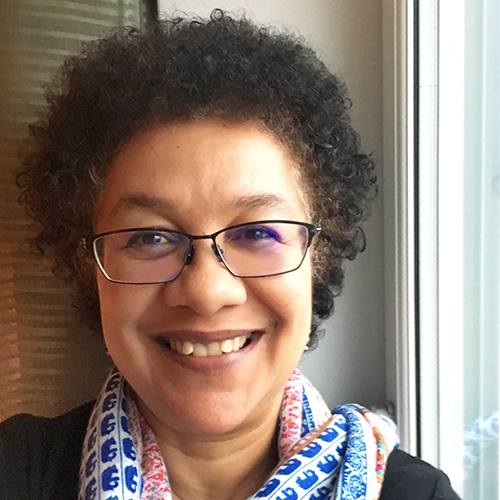

Dr. Amal Omer-Salim is the Executive Director of the World Alliance for Breastfeeding Action (WABA). She is a nutritionist with a Ph.D. from Uppsala University, Sweden. Her areas of expertise are nutrition, breastfeeding, international health, gender, programme planning, research, and advocacy, with a special focus on Africa and Asia.
Objective 1: Describe the objectives and components of the warm chain approach
Objective 2: List barriers and enablers for the warm chain
Objective 3: Apply the warm chain in their own setting and context
Global trends in breastfeeding rates only show modest increases between 2000 and 2015. Currently, about 40% of babies below 6 months are exclusively breastfed and several barriers on the structural, setting, and individual levels exist. Continuous support for mothers across the 1000 days from conception has been shown to be effective in increasing the duration and exclusivity of breastfeeding. WABA’s Warm Chain campaign places the mother-baby dyad at the core and strives to link different actors by coordinating efforts at all levels to provide a continuum of care during the first 1000 days. The warm chain needs to be protected, promoted, and supported. Protection includes implementation and monitoring of the International Code of Marketing of Breastmilk Substitutes as well as coordination to ensure that all the linkages in the chain are working well. Promotion entails providing information about the roles and responsibilities of each actor along the timeline. Support includes increasing knowledge, skills, and competencies of multi-professional teams in order to provide optimal support for breastfeeding. Achieving a warm chain of support for breastfeeding will help increase breastfeeding rates, thus ensuring improved survival, health, and well being. The short and long-term positive effects impact individuals, societies, and the planet.
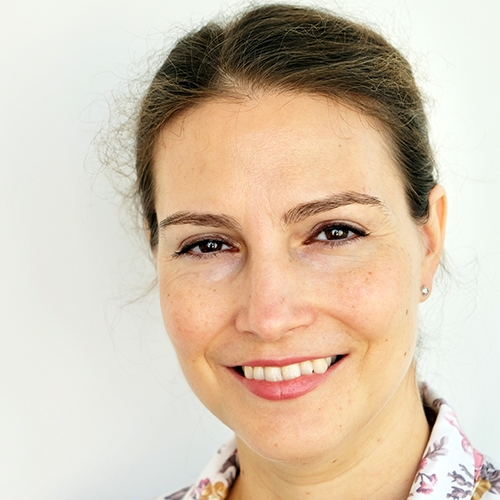

Dr. Smaranda Nay is a Family Doctor, an IBCLC, a Personal Development Counselor and a mother. She has been studying Transactional Analysis psychotherapy since 2007 and is now in her second year of training to become a Somatic Experience therapist. She uses her knowledge to teach parents how to connect with their children and how to attune to their babies’ needs, both through individual counselling sessions and in classes. She is part of the Romanian Lactation Consultants Association and holds lactation education courses for future IBCLCs. She gives lactation counselling consults and holds breastfeeding and childcare courses.
She also holds personal development workshops for teenagers and adults, collaborating with non-formal education organizations and schools. She is particularly curious about the development of an attuned relationship between people and building intimacy and trust. Working with babies, she observes the parent-child connection and explores its potential in healing and growth, and how it impacts the future development of the individual. Working with teenagers and adults, she facilitates ways in which childhood disruptions can be healed in the present.
Objective 1: Describe the importance of communicating with babies.
Objective 2: Discuss how to make the connection with a baby.
Objective 3: Describe ways that lactation and healthcare profesisonals can teach parents to connect with their babies
This is a presentation on how explaining things to babies of all ages, including newborns, can help solve difficult moments during lactation in the parent-baby relationship and lead to healthy parenting. Communication blocks happen frequently due to changes, events, and anxiety, and sometimes they can interfere with breastfeeding/chestfeeding. At least some of these blocks can be solved by communicating with the baby in an open, compassionate, and respectful way.
Lactation and healthcare professionals will learn how to approach such situations, what questions to ask and what suggestions to make to parents so they and their babies can overcome the situation. Lactation and healthcare professionals will also learn about different cases that I have encountered, how the method was applied and what were the results.
I deeply believe that the way we talk to babies, communicate with them and how we teach parents to do that is an essential part of our work. On the long term, it can make an important difference to how those babies are treated, respected, parented, educated, and raised and what kind of adults they will become.
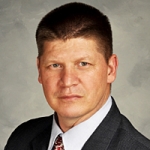

Tom Johnston is unique as a midwife and lactation consultant and the father of eight breastfed children. Recently retired after 27 years in the US Army, he is now an Assistant Professor of Nursing at Methodist University where he teaches, among other things, Maternal-Child Nursing and Nutrition. You may have heard him at a number of conferences at the national level, to include the Association of Woman’s Health and Neonatal Nurses (AWHONN), the International Lactation Consultant’s Association (ILCA), or perhaps at dozens of other conferences across the country. In his written work he routinely addresses fatherhood and the role of the father in the breastfeeding relationship and has authored a chapter on the role of the father in breastfeeding for “Breastfeeding in Combat Boots: A survival guide to breastfeeding in the military”.
Topic: Human Milk Synthesis: Just When You Thought You Knew - [View Abstract]
Topic: New Insights Into the Maternal Child Microbiome - [View Abstract]
Topic: Promoting Provider Self-Efficacy in Breastfeeding Support - [View Abstract]
Topic: Still Swimming Upstream: Breastfeeding in a Formula Feeding World - [View Abstract]
Topic: The Making of Human Milk: A Clinical Update - [View Abstract]
Topic: The Maternal-Child Microbiome or: The “Oro-boobular axis” - [View Abstract]
Topic: The Maternal-Child Microbiome or: The “Oro-boobular axis” - [View Abstract]
Topic: The Perinatal Microbiome - [View Abstract]
Topic: Using Evidence to Develop Clinical Lactation Skills - [View Abstract]
Objective 1: List basic assessment skills in lactation.
Objective 2: Discuss the evidence in support of common breastfeeding skills.
Objective 3: Identify counseling skills required for the breastfeeding family
The field of Human Lactation is a new profession. Much of what we use comes from apprenticeship programs and hard learned lessons from a mother’s own personal experience. The lactation profession needs to investigate several of their practices and policies to discover what is evidence based and what is anecdotal evidence. This presentation explores the practices commonly employed in breastfeeding (growth monitoring, infant positioning, the use of assisted feeding devices, and counseling skills) to determine which are evidence based and which will require further study if they are to be used in clinical practice.
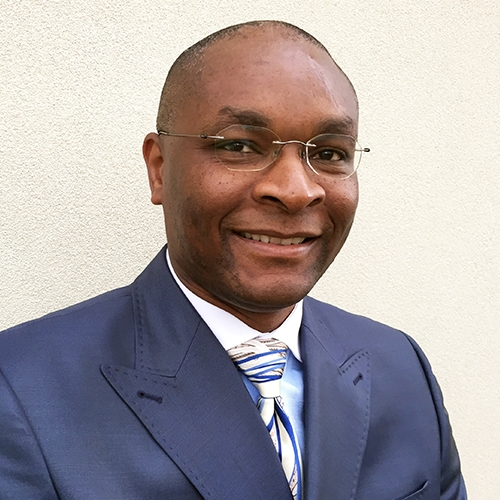

Muswamba Mwamba is a father of five breastfed children. An International Board-Certified Lactation Consultant, a public health practitioner, and a scholar; his research interests focus on immigrant health within the minority group in the context of the US health disparity. Muswamba helps mothers and babies obtain the best health outcomes by teaching and inspiring their partner/ father to fight to remove barriers that prevent successful breastfeeding. As a professor at the University of North Texas at Dallas, Muswamba disseminates clinical and non-clinical information to inform graduate students of significant developments and trends in the field of infant feeding.
Muswamba is a lifelong learner. He trained in Belgium, where he earned a bachelor's degree in agricultural engineering, a master's degree in human nutrition biochemistry, and a second master's degree in food science and technology. Witnessing striking disparity in his maternal and child health practice, he deepened his understanding of public health's complexity in the US and elsewhere. He earned a master's degree in Public Health at the University of North Texas and a doctoral degree in Public Health Executive Leadership from the University of North Carolina at Chapel Hill.
Objective 1: Discuss how male breastfeeding support intervention may reduce some of the adverse effects of psychosocial factors in African American communities.
Objective 2: Describe how African American and Black immigrant men experience breastfeeding in the U.S. within the context of the African American minority group.
Objective 3: Discuss Black fathers’ cultural expectations and relationship toward breastfeeding behaviors, identifying what is distinct and common about Black immigrants and African American.
Male breastfeeding support is evidenced to influence breastfeeding behaviors. Fathers play a vital role in determining women's choice to breastfeed. Many studies regarding fathers' breastfeeding influence included participants from a variety of ethnic backgrounds. Only a few studies examined African American men's breastfeeding attitudes. Within the U.S. disparity context, Black African immigrant breastfeeding experiences have not been measured.
The social and cultural breastfeeding experiences of Congolese Immigrants compared to those of African Americans were explored, analyzed, and contrasted. In the immigrant study, the breastfeeding cultural practice's visibility enables the breastfeeding perceptions of Congolese fathers. They identify their Congolese origin as a warrant for breastfeeding decisions and practice. Breastfeeding is a natural process that does not require prior deliberations between expectant couples. Breastmilk is valued for its God-given virtues rather than its medical benefits.
In the cultural context of African American, family, and friends enable breastfeeding support perceptions. Personal experiences and knowledge of breastfeeding benefits are predictors of breastfeeding decisions. However, there is not a cultural, existential framework supporting breastfeeding.
This study's findings and recommendations guided the development of a dynamic African American men breastfeeding support toolkit designed to utilize existing public health structures.
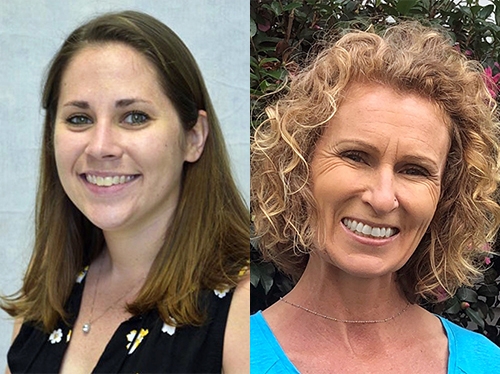

Hope has always been the type of person to dive head-first into the deep end (literally - she learned to swim before she was 2!). Hope became an International Board Certified Lactation Consultant (IBCLC) in 2017, completed her PhD in nutritional biochemistry in 2018 at NC State University, and became a Registered Dietitian Nutritionist (RDN) in 2020.
In addition to owning and operating Hope Feeds Babies in Rock Hill, SC, Hope is employed full time at Winthrop University in the Department of Human Nutrition overseeing the Certificate in Medical Lactation and running a research lab that focuses on helping mothers to reach their infant feeding goals, improving access to human milk, and analyzing the nutritional content of human milk. As an IBCLC, Hope has a passion for connecting with mothers to help them to reach their individual feeding goals and advocacy for maternal health. As an RDN, Hope loves to support parents in feeding their children, whether that is traditional solids, baby-led weaning, or blenderized tube feeds.
Karin always knew that helping people would guide the course of her career. Karin’s professional path demonstrates this passion as she pursued a BA in psychology from Villanova University, a Master’s in Nutrition Education from Immaculata University, and is currently in the latter stages of her dissertation work towards a PhD in Health Education and Promotion from Walden University. In the past 20 years, Karin has sought opportunities that allow her to gather experience in various settings. While earning her Masters in Nutrition Education, she worked as a counselor and nutrition therapist at the world renown Renfrew Center in Philadelphia, PA. It was here that Karin adopted her view that an individual’s relationship with food and body are critical to change and sustain physical and mental health.
Sharing this approach with future health-minded individuals prompted Karin to begin teaching at Winthrop University, where she has taught for the past seven years courses related to health and nutrition. During this time, Karin continues her own education through the pursuit of Doctorate in Health Education and Promotion from Walden University. Her dissertation focuses on online faculty perceptions of college student mental health concerns and if these perceptions predict the likelihood of a mental health service referral.
Objective 1: Define diagnostic criteria for anorexia nervosa (AN).
Objective 2: Apply screening tools for AN and know who to refer to for further care.
Objective 3: List the impacts that underweight can have on lactation, including milk production and composition, experiences for the lactating parent, and potential implications for infant growth and development.
Anorexia nervosa (AN) is a clinical condition characterized by restriction of energy intake, fear of gaining weight or becoming fat, and body dysmorphia. As pregnancy and subsequent lactation are associated with changes in weight and body shape, it is important to consider the implications of a pre-existing or current diagnosis of AN during the postpartum period. The research examining the impact of body changes during pregnancy on individuals with a history of AN has mixed results; some show AN symptoms regress during pregnancy, while other results show a resurgence of AN symptoms. While there is limited evidence of the impact of AN on milk production, milk composition, and breastfeeding experiences of the parent, the evidence that we do have can help guide lactation consultants when providing care for the dyad during the fourth trimester. In this presentation, participants will learn about the diagnostic criteria and screening tools for AN, the impact of energy restriction and AN on milk supply and composition, and will participate in a exploration of the implications AN may have on dyad care.
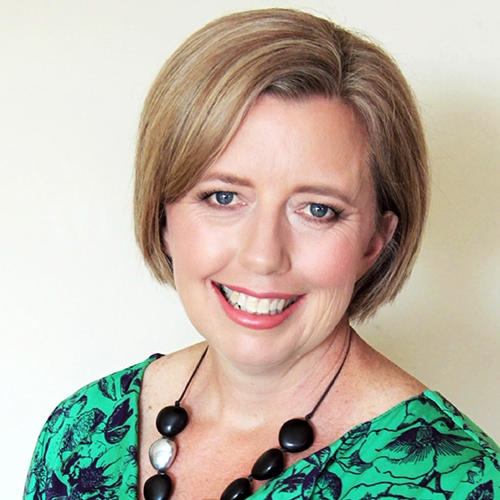

Naomi Hull is a Registered Nurse, an International Board-Certified Lactation Consultant (IBCLC) and has a Master of Public Health (Nutrition).
Naomi is mum to two teenage young adults, a Rhodesian Ridgeback and five chickens. Since 2006 Naomi has been a volunteer Breastfeeding Counsellor (Cert IV Breastfeeding Education) with the Australian Breastfeeding Association, and she qualified as an IBCLC in 2010 and has worked in a small Private Practice in Brisbane. While completing her MPH at the University of Queensland (UQ) she focused her dissertation on a qualitative review of stakeholder’s perceptions of the implementation of the Australian National Breastfeeding Strategy (2010-2015).
Since then she has gone on to lead and coordinate a national team in the assessment of Australian breastfeeding policies and programs using the World Breastfeeding Trends Initiative (WBTi) Assessment Tool.
Naomi is the Senior Manager for Breastfeeding Information and Research at the Australian Breastfeeding Association, where she is responsible for the provision of up to date, evidence-based information for the general community and health professionals.
Objective 1: List the features of peer counselling
Objective 2: Discuss the effect of the COVID-19 pandemic on Australian breastfeeding dyads.
Objective 3: Describe the issues faced by new families who called the helpline during the lockdown period
Peer counselling has a positive impact on duration of breastfeeding and is quite different to care provided in a health facility. The Australian Breastfeeding Association is a volunteer organisation that provides peer counselling, support and information to mothers and their families face to face but has always provided support via the telephone (National Breastfeeding Helpline), and also an online platform (LiveChat).
During COVID-19 isolation period in Australia, ABA volunteers reported anecdotal evidence of increased calls and a noticeable difference in the number of mothers calling for support to relactate or increase their supply, ABA decided to commence an in-house voluntary survey based on volunteer’s interactions with mothers on the topic of COVID-19.
This presentation will discuss discuss the features of peer counselling and how it works so well with breastfeeding support and the results of this in-house survey. The results provide insight into the impact on mothers, their main concerns, and insight around their impact on desire to breastfeed. The results also evaluate the experiences of peer support counsellors and their feelings about their volunteer role during this time.


Rue Khosa, AKA The Boob Boss, is the owner/founder of The Perfect Push, a lactation and parenting wellness clinic in downtown Redmond. She is a board certified family nurse practitioner, lactation consultant and a THRIVE parenting educator. Rue was born and raised Zimbabwe, where family plays a critical role in supporting expectant and new parents. This type of communal caring, called “kugarira”, helps families prepare for a new baby both emotionally and physically and guides them through the often challenging newborn period. Rue created The Perfect Push to bring that experience to Seattle. Rue began her women’s health career as a labor and delivery nurse over 10 years ago, at Washington Hospital Centre in DC. She received her graduate degree from Georgetown University, and her undergraduate degree from the University of Maryland, Baltimore. Prior to opening her private practice, Rue was a Teaching Associate in the Department of Family Medicine at the University of Washington’s School of Medicine and an Adjunct Clinical Faculty at Northwest University Buntain School of Nursing. In July 2019, Rue was commissioned by the Mayor to the City of Redmond’s Human Services Commission. In February 2020, Rue was invited to join Washington State Hospital Association's Safe Delivery Roadmap Commission. She sits on their Birth Equity task force working on program development. She also sits on the board of No More Under, a non profit organization committed to drowning prevention and awareness. Outside of redefining the childbirth and parenting experience, Rue is a mother of two young boys with a third on the way. She lives in Redmond, WA with her husband, mother and boys.
Objective 1: Discuss how some cultures have embraced and integrated extended family in supporting lactation success.
Objective 2: Describe the role of lactation providers in including extended family in lactation support and identifying alternative support for transplant families.
Objective 3: Discuss the painful generational history that has resulted in lower lactation rates in communities of color and how to help new parents counteract negative extended family influence.
American culture values self-sufficiency and celebrates self-sacrifice in the name of success. The idea of community and communal living is fast becoming a thing of the past. Children graduate, go off to college, start careers and families seldom looking back. Moving back home or moving back to one’s old neighborhood is now unheard of. The result has been the rise of the nuclear family and the fall of the generational knowledge that supported breastfeeding and identified new moms at risk of perinatal mood and anxiety disorders.
This talk will explore the importance of restoring and improving community and peer breastfeeding support and identifying barriers to success. Lactation providers will learn how to identify importance and the role extended family and how to include them without violating our patients privacy. Attendees will gain insight on health disparities and the historical significance of breastfeeding in communities of colors. Last but not least, the talk will highlight the importance of providing culturally sensitive and appropriate care.
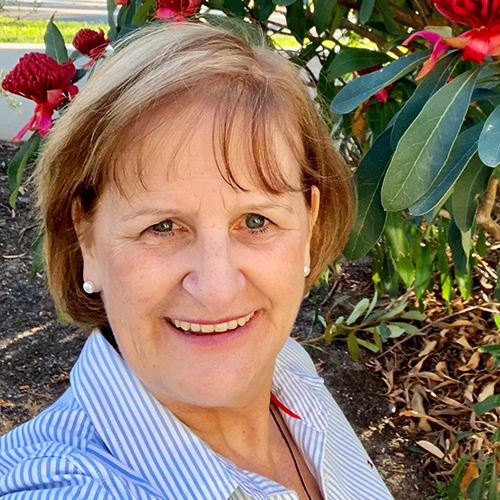

Decalie is a Registered nurse/midwife with over 40 years of experience collectively working as an IBCLC in a clinical roles within Primary Care and Community Health. Currently working as a Child & Family Health Clinical Nurse Specialist 2 in busy Community of the Blue Mountains, NSW Australia. She supports health professionals and parents with education of lactation/infant feeding/settling and behavioural issues for infants and children 0 to 5 years of age as a clinical specialist. A current BFHI Assessor. Has shared her extensive clinical experience in workshops at many ILCA, LCANZ and ABA conferences over the years. Her passion in support for mothers and babies.
Decalie has volunteered for Board of Director for the Australian Lactation Consultants Association (ALCA) 7 years on the ILCA International Lactation Consultant Association, last 2 years as President. On the Inaugural World Trends Initiative WBTI AUS Core group. Advisory committee for International Childbirth Education Ass. ICEA. World Health Organisation working group for revision of BFHI Education package, WABA advisory group. ILCA Nominations committee chair, IBCLC Care award Co chair.
Enjoying the next level of parenting being Mimi to her 3 year old grandson Cole.
Objective 1: Learning Objectives: Learners will
Identify the individual needs of the larger breasted client/mother.
Objective 2: Identify support strategies for the mother to successfully breastfeed.
Objective 3: Outline some practical skills and tools to assist a larger breasted mother to successfully breastfeed in the early days and long term.
The breastfeeding journey for a woman and her baby is very special. Mothers who may be larger-breasted and lactating often have special breastfeeding needs and issues. This online session empowers clinicians with supportive tools to help these women successfully breastfeed. This session will enable clinicians to utilize simple, practical techniques, tips, explore the challenges of larger breasts during lactation. Attendees will develop their advanced breastfeeding counseling skills to manage individual situations and provide the unique support necessary. The research shows that if mothers with above average weight are provided with the appropriate breastfeeding management and support early, their breastfeeding experience will be enhanced and sustained. This sensitive session is designed to aid clinicians in developing their own practical breastfeeding support kit, as well as honing specific skills for a positive outcome when supporting larger breasted women to breastfeed their babies.
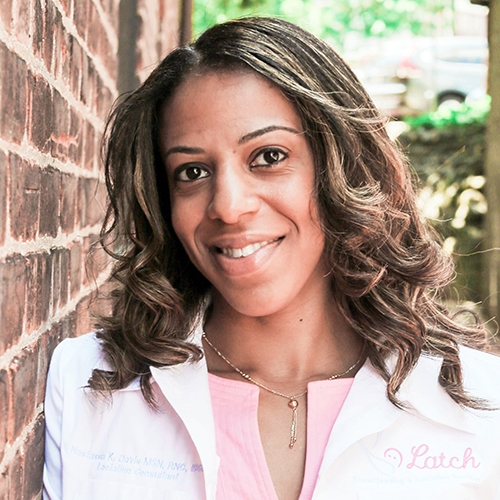

Dr. Nastassia Harris is a licensed registered nurse with over 15 years’ experience in perinatal nursing and became an International Board Certified Lactation Consultant in 2009.
Nastassia serves as an assistant professor in the school of nursing at Montclair State University. Over her career Nastassia developed a passion for eliminating disparities in black infant and maternal health. In 2018, she went on to found a nonprofit, the Perinatal Health Equity Foundation where she serves as the executive director. Through the nonprofit, Nastassia established Sistahs Who Breastfeed, a breastfeeding support group for black women which operates in several NJ cities.
She is active in several committees and organizations including the Association of Women's Health Obstetrics and Neonatal Nursing and the Black Mamas Matter Alliance. Nastassia's research and clinical interests include implicit bias/racism in healthcare, breastfeeding in the black community, obstetrical violence, high risk OB, and reproductive justice.
Topic: When It's Time to Let Go... Stories of Weaning - [View Abstract]
Objective 1: List strategies that are both effective and ineffective in the weaning process.
Objective 2: Discuss the challenges faced by families in the weaning process.
Objective 3: Explain reasons why families may decide to wean
Weaning is an inevitable component of breast/chestfeeding. Many families have expressed feeling unprepared for the experience and the challenges they face in that journey. This presentation will explore the current research and lived experiences of weaning among different families and cultures. We will discuss strategies that were both effective and ineffective in the weaning process, time period in which families began the weaning process as well as tips and tricks from the parent perspective that lead to successfully weaning their child. Weaning will be discussed in the context of the impact on both the parent and the child.
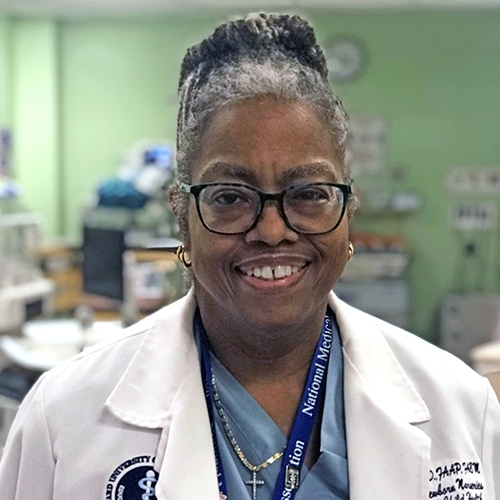

Michal A. Young, M.D., FAAP, FABM is currently an Associate Professor in the Department of Pediatrics and Child Health at Howard University College of Medicine. She also serves as the Medical Director of the B.L.E.S.S. (Breastfeeding Lactation Education Support Services) Initiative as well as Director of the NICU and Newborn Services, at Howard University Hospital. She is a graduate of Howard University College of Medicine, Class of 1979. Dr. Young completed a rotating internship in Medicine and Pediatrics at Grady Memorial and Emory Hospitals in Atlanta, Georgia, followed by a Pediatric residency in the Howard University Hospital/D.C. General Hospital Combined Program, and a fellowship in Neonatal-Perinatal Medicine at Georgetown University Hospital.
Dr. Young has several publications and presentations over a range of topics governing infant care. Her research interests are in developmental outcomes of the ELBW, HIV perinatal transmission, the Diabetic Dyad and in breastfeeding education for professionals and parents.
She is a member of Alpha Omega Alpha, a fellow of the American Academy of Pediatrics (sections on Perinatal Medicine and Breastfeeding), a Fellow and member of the Board of Directors of the Academy of Breastfeeding Medicine (Chairman of its Protocol Committee), member of the National Medical Association (a Past Chair of its Pediatric Section), Member of the Board of Directors for the D.C. Breastfeeding Coalition, Member of the Board of Directors for ROSE: Reaching Our Sisters Everywhere, Inc., one of the Chapter Breastfeeding Coordinators for the D.C. Chapter of the American Academy of Pediatrics and Board Member of the Prolacta Bioscience Foundation.
Objective 1: Explain general immunological benefits of breastfeeding to the health of the infant.
Objective 2: List 4 immunologic components of human milk and their roles.
Objective 3: Discuss the contribution by human milk to the infant's gut microbiome.
Human milk provides multiple layers of immune protection to the newborn by providing bioactive components that protect the infant from pathogenic infection, facilitate immune development and establish a healthy gut microbiome. This presentation will review the cellular and humoral components of human milk that help provide this protection. Additionally, the nutritional components of human milk that also contribute to its immune impact will be briefly explored. The long-term protective effect of breast milk on adult illnesses and disease and its presumed role will be discussed. Lastly the impact milk storage, milk banking practices and use of donor milk as mechanisms to provide immune support to the newborn will be considered. An interactive power point presentation will be used to deliver this important topic.
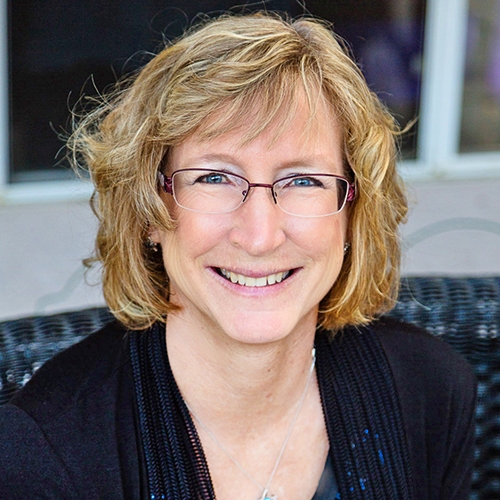

Lisa Marasco has been working with breastfeeding mothers for 35 years and has been Internationally Board Certified since 1993. She holds a Master’s degree in Human Development with specialization in Lactation Consulting and was designated a Fellow of ILCA in 2009.
Lisa is co-author of Making More Milk: The Breastfeeding Guide to Increasing Your Milk Production, a contributing author to the Core Curriculum for Interdisciplinary Lactation Care, and a Cochrane Collaborative author. She is employed by WIC of Santa Barbara County while she continues to research, write and speak. In addition, Lisa is affiliated with La Leche League of So. Calif/Nevada, and serves on the Breastfeeding Coalition of Santa Barbara County.
Topic: Deciphering the Lactation Curve - [View Abstract]
Topic: Getting a Better Grip on Prolactin - [View Abstract]
Topic: Recognizing When Things Are Heading South - [View Abstract]
Topic: The Mysterious Milk Ejection Reflex - [View Abstract]
Objective 1: Describe the impact of duct diameter and length on the milk ejection reflex.
Objective 2: List 5 inhibitors of the milk ejection reflex.
Objective 3: List one physical, one psychological, one pharmacological and one complementary strategy for an impaired letdown reflex and describe when each might be appropriate.
Milk removal drives milk production and feeds the baby. The ability of a baby or pump to remove milk from the breast depends strongly on the milk ejection/letdown reflex. While normally robust, a number of factors can influence this reflex, some more obvious than others. When milk flow suddenly becomes an issue, the rush is on to determine why and what to do about it. This session will take a deeper look at how this reflex works, factors that can affect it positively or negatively, and potential strategies to help.
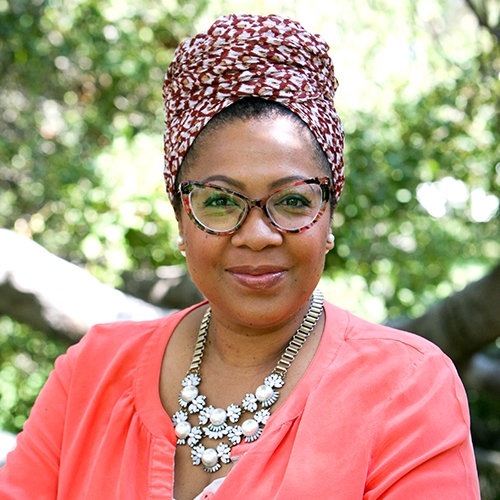

Nekisha Killings is an equity strategist, internationally board-certified lactation consultant, and maternal and child health advocate who speaks, teaches, and facilitates on topics related to equity and dismantling bias across various sectors.
When she is not home educating 4 future world changers, she acts as a Director of Equity, Inclusion and Belonging at Lactation Education Resources and consults organizations on creating and implementing strategies to better support marginalized communities.
Nekisha holds a Masters in Public Health and penned the chapter titled Cultural Humility in the latest Core Curriculum for Interdisciplinary Lactation Support text. Nekisha is on a mission to normalize brown breasts and nipples in health education, thereby better equipping healthcare providers to accurately assess and treat people of color.
Nekisha's work is rooted in a compassion and candor that could only have been cultivated in years of supporting new parents during their first days of parenthood. Nekisha is an active duty military spouse who has been awarded the Spouse of the Year designation for her volunteer efforts supporting families.
Topic: Breast Assessment and Non-White Skin Tones - [View Abstract]
Topic: BreastSide Manner: A Patient-Centered Approach to Lactation Support - [View Abstract]
Topic: Marching Orders: Developing Practical and Impactful Care Plans - [View Abstract]
Objective 1: List signs of compassion fatigue in healthcare/lactation professionals.
Objective 2: Describe the limitations of a patriarchal model in empathic lactation education and clinical care.
Objective 3: Apply empathy in practice in an exhausted post 2020 psychosocial state.
Healthcare professionals, particularly those in the lactation field, are known for providing care that is emotionally, physically, and mentally taxing. Providing care as lactation professionals during a pandemic has driven many to experience compassion fatigue. This phenomenon impacts one’s personal health in a myriad of ways and also has a significant impact on how one provides empathetic care to families. The current communication model for providing empathetic care in lactation is steeped in the patriarchal model, which actually suppresses empathy. This presentation will help health care providers identify signs of compassion fatigue and provide tools for self-assessment. Additionally, attendees will learn how to apply a natural empathetic model to their lactation/ IBCLC practice to protect their personal health and promote a more supportive way to engage with their families.
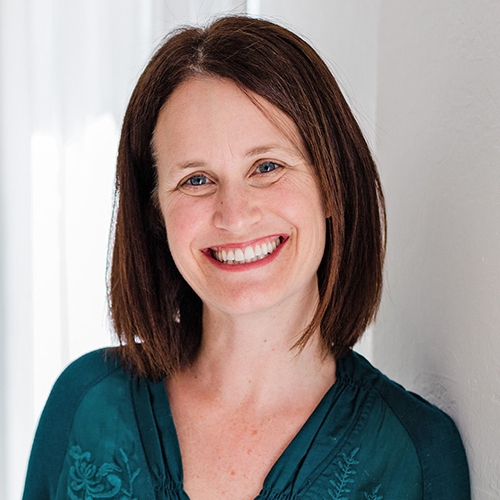

Robin Kaplan has been an IBCLC since 2009, the same year that she opened up the San Diego Breastfeeding Center. She founded the San Diego Breastfeeding Center Foundation in 2016, a 501(c)3 organization whose mission is to reduce breastfeeding disparities among families of color and low-income families, as well as provide scholarships for women of color to become IBCLCs.
Robin was the founding host of the Boob Group podcast and published her first book, Latch: a Handbook for Breastfeeding with Confidence at Every Stage in 2018. Robin’s center has been a clinical training site for the UCSD Lactation Consultant program since 2015.
In 2019/2020, Robin helped write the curriculum for the University of California San Diego Lactation Educator Counselor program and was the Program Manager for the UCSD Curriculum Development Team for the Pathway 1&2 Lactation Consultant program. Robin has a BA from Washington University in St Louis and Masters in Education from University of California Los Angeles. Robin is currently attending the Functional Nutrition Alliance to become a Functional Nutrition Counselor.
Objective 1: Design a pre-consult checklist for virtual consultations.
Objective 2: Assess for and identify tethered oral tissue during a virtual consultation.
Objective 3: List 3 uses for recordings/videos prior/during/after digital consultations
The need to provide virtual support for breast/chestfeeding families may have been ignited by the pandemic, but telehealth is here to stay. The convenience and flexibility of meeting with families virtually removes barriers, such as location, childcare, and transportation. It also comes with its own set of challenges, such as difficulties reading body language, making connections with our clients, and assessing oral anatomy/milk transfer. Yet, with some intentional preparation, crafty detective skills, open-ended questions, and protocols for complicated situations, you may find that virtual consultations can truly meet the needs of your clients/patients.
This presentation will help attendees think through those important preparations to optimize virtual support.
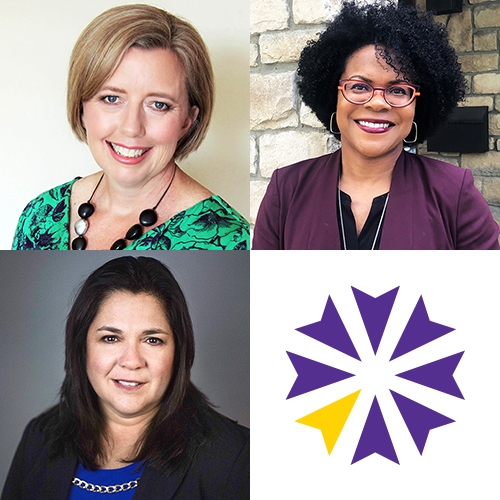

Annette Leary is a registered nurse with over 33 years of experience working in Maternal Child Health. She became an IBCLC In 1995. She works as a Maternal Educator in a large tertiary care hospital (14,000 deliveries a year) that is Magnet designated, JCAHO certified, and BFHI awarded. Her responsibilities include providing outpatient lactation virtual and in-person support, staff education, and inpatient consultations. She began her Upledger Craniosacral training in 2015, taking advanced maternal and pediatric specialty classes. Her most special efforts to date include her marriage of over 33 years, four adult children and being nana to two grandchildren.
Naomi Hull as a Registered Nurse, an International Board-Certified Lactation Consultant (IBCLC) and has a Master of Public Health (Nutrition). Naomi is mum to two teenage young adults, a Rhodesian Ridgeback and three chickens. Since 2006 Naomi has been a volunteer Breastfeeding Counsellor (Cert IV Breastfeeding Education) with the Australian Breastfeeding Association, and she qualified as an IBCLC in 2010 and has worked in a small Private Practice in Brisbane. While completing her MPH at the University of Queensland (UQ) she focused her dissertation on a qualitative review of stakeholder’s perceptions of the implementation of the Australian National Breastfeeding Strategy (2010-2015). Since then she has gone on to lead and coordinate a national team in the assessment of Australian breastfeeding policies and programs using the World Breastfeeding Trends Initiative (WBTi) Assessment Tool. Naomi is the Senior Manager for Breastfeeding Information and Research at the Australian Breastfeeding Association, where she is responsible for the provision of up to date, evidence-based information for the general community and health professionals.
Maxine Scringer-Wilkes graduated with a nursing degree followed later on by her Master of Nursing in 2017 both from the University of Calgary. Maxine was a public health nurse in Calgary for 13 years, where providing face to face contacts with new families soon after discharge is a standard of care. Most families named feeding challenges as their biggest concern. In turn, Maxine developed a passion for lactation support, worked towards and attained the International Board-Certified Lactation Consultant designation, in order to assist families to reach their feeding goals.
In 2016, Maxine made the transition from public health to acute care where she currently works in all areas of a large Children’s hospital to support dyads with a myriad of lactation concerns but is primarily in the NICU. Maxine’s responsibilities includes orienting new staff to teaching a provincial lactation education within a team. Maxine is passionate about sharing knowledge with aspiring LCs and is a mentor to many. Maxine participates on numerous committees to update lactation and feeding policies, procedures and documents. Furthermore, she volunteers on provincial and national breastfeeding committees.
Objective 1: Discuss the ways in which the shift to virtual care has impacted the lactation profession.
Objective 2: Describe ways that virtual support and telehealth visits have both reduced and increased access to rural and poorly resourced communities.
Objective 3: Discuss the potential future of virtual support in the lactation field.
The past decade has seen a marked increase in telehealth. Lactation support in a virtual format had been slowly increasing virtual access to care prior to COVID-19. As the pandemic started, in a matter of weeks, it became necessary to embark on virtual care for the majority of lactation support and care providers were forced to adapt to a new method of care. This sudden change has highlighted both the benefits and drawbacks of virtual lactation support. The learning curve continues and this panel has been designed to explore the lessons, the triumphs, the challenges, and the future needs for virtual lactation care.
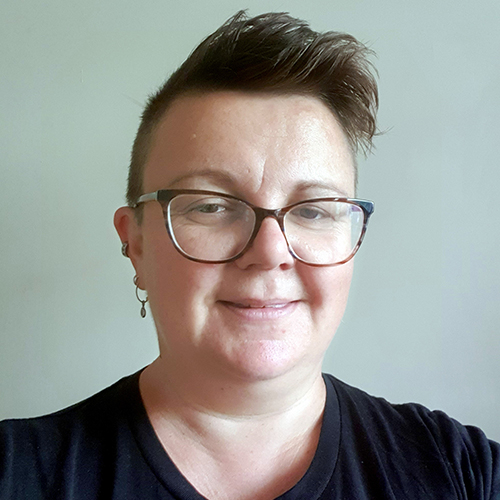

Kathryn Stagg is mum to 4 boys, twins and 2 subsequent singletons. She trained as a breastfeeding peer supporter and volunteered in the groups for years in and around Harrow, NW London, UK.
Kathryn caught the breastfeeding support bug and decided to further her knowledge training as a Breastfeeding Counsellor with the Association of Breastfeeding Mothers and then qualifying as an IBCLC 5 years ago.
Kathryn started Breastfeeding Twins and Triplets Facebook group almost 8 years ago and it now has over 9000 members. It has recently been made into a UK charity. Kathryn is passionate about delivering high quality breastfeeding support to as many twin and triplet families as possible, creating resources and educating health care professionals and breastfeeding supporters. She runs a small private practice and continues to teach music part time, her original career path. Kathryn is the author of Breastfeeding Twins and Triplets; a guide for professionals and parents.
/p>
Topic: Don't Let Us Fool You: Breastfeeding in Late Preterm and Early Term Babies - [View Abstract]
Objective 1: List key ways to help families prepare for premature birth, including establishing breastfeeding multiples.
Objective 2: Describe components of unique care specific to the Late Preterm and Early Term birth in establishing breastfeeding multiples.
Objective 3: Discuss how lactation support professionals to support multiple birth families during the different stages of their breastfeeding journey
This session will help you understand the challenges of a multiple pregnancy and birth. Discover preparations that can help ease stress and increase success in lactation. Learn how to support families experiencing premature birth. You will understand the best way to help parents establish breastfeeding their multiples, even with late preterm/early term birth. This session will help attendees gain and understanding of how to navigate the challenges of breastfeeding multiples and how to support families effectively during the different stages of their breastfeeding journeys.
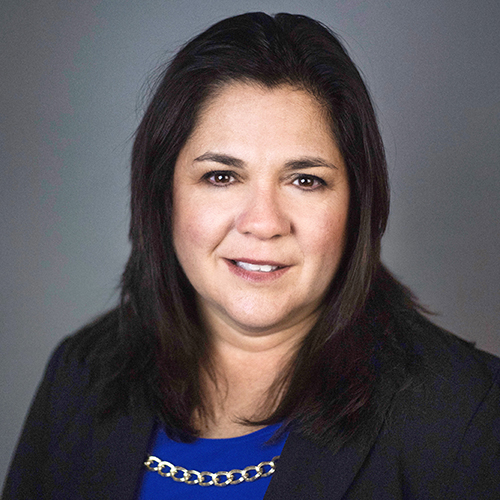

Annette Leary is a registered nurse with over 33 years of experience working in Maternal Child Health (pediatrics, postpartum, home health care and level 2 NICU). She became an IBCLC in 1995. She owns a private practice providing office, in home, and virtual visits at Orlando Lactation and Wellness. In 2022 she formed a collaborative company Baby B.L.I.S.S. : Central Florida Feeding Collaborative where she and her business partners help families prenatally, antepartum and post partum navigate the growth, development and feeding journey of their children. She began her craniosacral therapy training through the Upledger Institute in 2015, taking advanced maternal and pediatric specialty classes. Annette has found great improvement incorporating craniosacral therapy techniques with lactation consulting. Helping Families Latch onto Parenting has always been her mantra.
Topic: Where to Start: Creating a Lactation Care Plan for Complex Breastfeeding Cases - [View Abstract]
Objective 1: List 3 significant factors that impart the need for priority evaluation/assessment.
Objective 2: Use critical thinking skills to triage the Che’s/breastfeeding family’s needs.
Objective 3: List additional key health care providers to collaborate with and assist in managing the case.
Lactation support may be time-limited when caring for multiple families with varying degrees of complexity and needs. Prioritizing between parents and within the individual cases, employing critical thinking skills, and identifying the chest/breastfeeding family’s needs is essential to efficient workflow. Competing priorities can be stressful and draining. Mindfulness empowers those providing care the clarity to prioritize needs and increase satisfaction for both family and lactation support team.
The presentation will consist of actual lactation scenarios varying in complexity and diverse work environments. Participants will interact via the chat box to triage cases, rank interventions and create a collaborative discipline list. We will end with a brief mindful activity.


Liz Brooks is a private practice International Board Certified Lactation Consultant (IBCLC) and licensed lawyer, with expertise in criminal, administrative, non-profit, ethics, and lactation-related law. Liz offers in-home lactation consultations, and bedside care and teaching in two Baby-Friendly-designated hospitals.
She has been a leader in organizations for IBCLCs, breastfeeding promotion, and non-profit human milk banking. She authored the only textbook on legal and ethical issues for the IBCLC, and writes on health care ethics, equity, and conflict-of-interest in several books, blogs, and peer-reviewed journals.
She is a popular international conference speaker, offering practical tips with wit and wisdom for anyone who works with lactating and human milk-using families. Liz self-identifies as a cisgender hetero white woman with unearned privilege, and uses she/her/hers pronouns.
Topic: Using a Cool Head When You’re on the Hot Seat: Ethical and Legal Topics That Make Us Sweat, and How to Avoid Getting Burned - [View Abstract]
Topic: What’s Too “Friendly” for an IBCLC on Social Media? - [View Abstract]
Topic: Whiners and Deniers: Ethics and Diplomacy in Difficult Cases - [View Abstract]
Objective 1: Define the difference between an ethics obligation, and a legal obligation, in clinical practice
Objective 2: Explain how gifts and samples from commercial entities, to health care providers, can change professional clinical behavior
Objective 3: Describe why de-identification of a patient/client, before discussing their case with colleagues, does not meet ethical standards for privacy and confidentiality.
We all understand, generally, that lactation support providers – from licensed primary healthcare providers (HCP) to volunteer peer counselors – owe a “duty of care” to the parents they work with, defined by laws and ethics codes. But many are concerned that they do not know what is really expected of them, in the moment of clinical care, when decisions about how to do things “the right way” must be made. This session will cover the basic of ethics and legal duty as a lactation support provider. Examples from the International Board Certified Lactation Consultant (IBCLC) literature will be used. A few topics that are the most common "hot spots" for practitioners (the ones that make us sweat) will be explored with a few slides, and a lot of free-flow Q&A with session attendees, as we ponder realistic tactics to protect ourselves as practitioners with cool heads and clinical excellence.


Sejal is an International Board Certified Lactation Consultant (IBCLC) in private practice and an infant massage educator in Hillsboro, Oregon, USA. She combines her professional expertise with her personal instincts as a mother and a supportive team member.
She holds a Bachelors in Microbiology and Clinical Laboratory Science.
She also brings with her the following comprehensive toolkit: Certified Educator of Infant Massage, Formerly Certified in skin-to-skin care for full term infants from the United States Institute of Kangaroo Care Certified Provider of Innate Postpartum Care.
She has presented nationally and internationally for GOLD lactation, ILCA, community colleges, local lactation organizations.
As a lactation consultant, she believes that every individual needs to be educated about breast health, optimal infant feeding and how breastfeeding support is a basic human right and can impact world health globally.
She strives to help each family by continuing to learn all she can about breast health, breastfeeding ecology, breastfeeding movement and parent-infant connection using the neurobiological and infant mental health lens.
When she’s not with her clients, you can find her at home in Hillsboro, Oregon, USA, listening to bollywood music, hanging out with friends and spending time with her family.
Topic: Calm & Regulated: Rethinking Our Approach to Latch and Positioning - [View Abstract]
Topic: Teaching Infant Facial Massage to Parents to Support a Functional Latch - [View Abstract]
Objective 1: Define the key factors that influence feeding behaviors.
Objective 2: Apply the skills and techniques they learn during this presentation in their clinical practice.
Objective 3: Demonstrate lactation support using current research and evidence-based practices.
Evaluating feeding and observing babies at the breast is a big part of what lactation professionals do. The privilege to observe babies at the breast in private practice at a much slower pace has provided a unique observation opportunity. Each baby and parent dyad is unique and so are the challenges that come with it. The focus of this interactive workshop is to help participants become astute observers of the infant’s movements and posture before and during feeding. It will further enhance their clinical skills by looking at the big picture of how the infant's innate behaviors ensure harmonious breastfeeding ecology. This presentation will take a deeper dive into how the infant’s use of their senses, and nine steps of the breast crawl not only lead to self-attachment but it also lays down the foundation for self-efficacy and self-regulation in babies.
Accreditation
CERPs - Continuing Education Recognition Points:
Applicable to International Board Certified Lactation Consultants (IBCLCs), Certified Lactation Counsellors (CLCs), Certified Lactation Educators (CLEs), Childbirth Educators (CBEs) and doulas. GOLD Lactation Online Conference 2021 has been approved for 29.5 CERPs (24.5 L CERPs) (3 R CERPs) (2 E CERPs). GOLD Learning is designated as a Long Term Provider of CERPs by the International Board of Lactation Consultant Examiners (IBLCE) -Approval #CLT114-07.
Midwifery CEUs (MEAC Schools):
Applicable to NARM Certified Professional Midwives and those who require MEAC Certified Education. The GOLD Lactation 2021 Conference package is approved for 2.95 MEAC CEUs by the Midwifery Education Accreditation Council. Please note that 0.1 MEAC CEU is equivalent to 1 NARM CEU.
If you have already participated in this program, you are not eligible to receive additional credits for viewing it again. Please send us an email to [email protected] if you have any questions.
Additional Details
Viewing Time: 8 Weeks
Tags / Categories
(IBCLC) Development and Nutrition, (IBCLC) Education and Communication, (IBCLC) Equipment and Technology, (IBCLC) Ethical and Legal Issues, (IBCLC) Infant, (IBCLC) Infant, (IBCLC) Maternal, (IBCLC) Maternal, (IBCLC) Pharmacology and Toxicology, (IBCLC) Physiology and Endocrinology, (IBCLC) Psychology, Sociology, and Anthropology, (IBCLC) Public Health and Advocacy, (IBCLC) Research, Birth, Pregnancy & COVID, Breastfeeding Advocacy, Breastfeeding Multiples, Breastfeeding Support, Breastmilk / Human Milk, Counseling Skills, Family & Social Support, Feeding Devices and Tools, IBCLC & COVID, IBCLC & International Code on the Marketing of Breast Milk Substitutes, IBCLC in Collaboration With Other Health Professionals, IBCLC Using Research, Induced Lactation & Relactation, Infant Anatomy & Physiology, Lactation Case Studies, Maternal & Infant Assessment, Maternal Anatomy & Physiology, Maternal Illness & Breastfeeding, Medications & Herbs, Peer Support for Breastfeeding, Self-care for the Lactation Consultant, Slow Weight Gain, Supplementation & Artificial Breast Milk, Weaning
How much time do I have to view the presentations?
- The viewing time will be specified for each product. When you purchase multiple items in your cart, the viewing time becomes CUMULATIVE. Ex. Lecture 1= 2 weeks and Lecture Pack 2 = 4 Weeks, you will have a total of 6 weeks viewing time for ALL the presentations made in that purchase.
- Time for viewing the talks begins once you purchase the product. For Live Webinars & Symposiums, the viewing period begins from when the live event takes place. Presentations can be accessed 24/7 and can be viewed as many times as you like during the viewing period.
What are bundled lectures?
- Presentations may be available individually or via a bundled package. Bundled lectures are a set of lectures that have been put together based on a specific category or topic. Some lectures will be available in both individual and lecture form, whereas others will be available only via a bundled lecture pack.
Will there be Handouts?
- YES! Each lecture comes with a PDF handout provided by the Speaker.
Some lectures include a Q&A, what does that mean?
- During our online conferences, presentations that occur live are also followed by a short 15 minute Question & Answer Session. The Speaker addresses questions that were posted by Delegates during the presentation. We include the recording of these Q&A Sessions as a bonus for you.
How can I receive a Certificate?
- If this presentation offers a certificate, once you are done viewing the lecture or the lectures within a bundle, submit your attendance record in order to be able to download your certificate. You'll be able to see which credits are offered for the lecture by hovering over the "Credits Available" link within the "Speakers & Topics" tab.
Professionals that selected this package also viewed

|
|

|

















